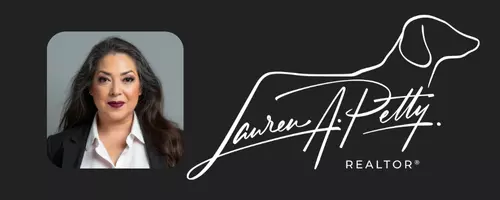Blog > Compass, Zillow iron out lawsuit discovery terms
Compass and Zillow might disagree on many things, but when it comes to the proposed parameters of their expedited discovery, the two adversaries managed to agree on a few items.
In a joint letter filed on Monday addressed to Judge Jeanette A. Vargas, the parties outlined their proposals for the expedited discovery Compass was granted in relation to its motion for a preliminary injunction. The Robert Reffkin-helmed firm is asking the court to stop Zillow from enforcing its listing access standards, which bans listings that are not entered into the MLS within 24 hours of public marketing. However, according to a Compass spokesperson, some listings held by its agents received violation notices from Zillow after being entered into their local MLS within 24 hours of marketing as coming soons and not active listings.
The preliminary injunction is part of a lawsuit Compass filed against Zillow in late June, in which it claims that Zillow is a monopoly and is harming competition and Compass through its listing access standards policy.
In the joint letter, the parties tell the court that expert witnesses used in the lawsuit may opine on general real estate industry background information, the nature, rationale, and effect of Compass’s three-phased marketing strategy and Zillow’s listing policy, harm to the market and competition (or lack thereof) with respect to Zillow’s policy, the balancing of anticompetitive effects and pro-competitive benefits with respect to the Zillow’s policy, market definition, market power (or lack thereof), and rebuttal to opinions raised by other side’s expert.
Both sides agree to withdraw some data discovery requests
Both sides have also agreed to withdraw their respective data-related discovery requests due to the expedited nature of this discovery phase. However, both said they wish to retain the ability to “issue such discovery requests for data after the preliminary injunction evidentiary and hearing phase of the case is complete.”
Compass said it is limiting the scope of its expert discovery to areas that provide necessary background and to only the elements of their claims that are currently being disputed. This will include expert testimony on the alleged “irreparable injury” Compass has suffered as a result of Zillow’s policy. However, Zillow contends that “allowing expert testimony on irreparable harm to Compass (or lack thereof) is both unnecessary and would constitute sandbagging.”
“Any information relating to harms that Compass claims to have suffered is within Compass’s own knowledge and could and should have been set out with Compass’s PI Motion,” the letter states.
Parties disagree on expert testimony details
Additionally the parties disagree on whether the expert testimony needs to be identical to Compass’s opening papers.
Compass argues that “prohibiting the experts from fully considering and incorporating the record evidence would do a disservice to the parties, the Court, and market participants in the real estate industry. And preserving Plaintiff’s expert’s ability to respond to Defendants’ arguments certainly does not amount to ‘recasting’ Plaintiff’s essential theories of the case—which are unambiguous and well understood by Defendants.”
On the other hand, Zillow contends that it is only able to meet an expedited discovery schedule if it knows what to focus on in its fact discovery.
“Allowing Plaintiff to change the whole theories of their antitrust claims after the close of expedited fact discovery and in an expert report, with only three to four weeks for Defendants to respond, would be highly prejudicial and akin to allowing a Plaintiff to amend its complaint after the close of merits fact discovery and in the middle of expert discovery,” the letter states.
Compass, Zillow can take up to five depositions
When it comes to depositions, the parties agreed that they should be eligible to take up to five depositions, telling the court that “establishing any additional restrictions on depositions or hearing witnesses at this time is premature and unnecessary.” In the same vein, Compass also tells the court that it is premature at the moment to limit the number of witnesses who will testify at the hearing.
Zillow, however, argues that “the number of party fact witness depositions should be based on the number of first-party witnesses each party may call at the hearing, both of which must be subject to a reasonable cap.” Due to this, Zillow is asking that each party be allowed to call up three first-party fact witnesses at the hearing and be able to depose up to five fact witnesses from the other party.
Although there are some similarities when it comes to the proposed schedule for the expedited discovery, Compass has proposed that the hearing begin on November 3, 2025 and last four to five days, while Zillow has asked for it to start on December 8, 2025, and only last three days. Regardless of when the hearing occurs, the parties have agreed that the deadline for Zillow to file its motion to dismiss should be 30 days after the court rules on Compass’s preliminary injunction motion.


